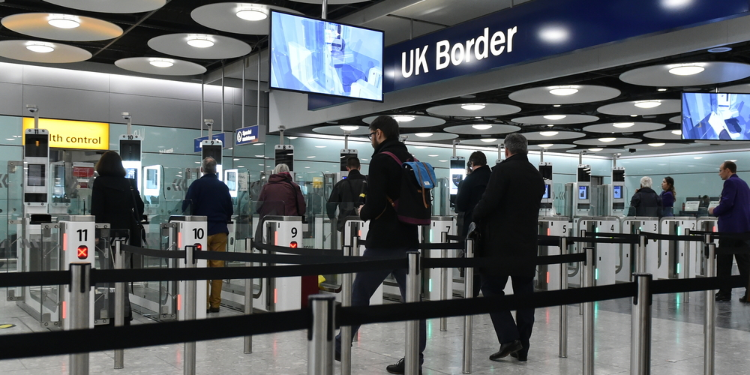
Due to the rapid evolution of COVID-19, most countries around the globe had to implement strict border controls. For more than two months, only repatriation and essential commercial flights were authorised. Maritime and land transport were also severely affected – all this having a significant impact on immigration and the global economy as a whole. Today, many countries are preparing to lift border restrictions, but under certain conditions. What does that mean?
The coronavirus pandemic has impacted travel and immigration in an unprecedented way. Europe, the Americas, Asia and the Middle East all set up a series of border restrictions since March in order to contain the pandemic – even though many countries didn't reach their aim. Today, the USA is one of the most severely affected countries with a death toll of more than 105,000. You will recall that the United States had only prohibited the entry of certain nationalities at the beginning. Others, like Australia, only authorised its citizens and residents on its territory.
According to the European Center for Disease Prevention and Control, however, border restrictions are far from being an efficient measure to contain the coronavirus. Hence, European Union countries are now aiming at kickstarting travel within the Schengen area only so as to limit the impact of the pandemic on the European economy, and on social life within the region.
The economic impact of COVID-19 on travel
The global economy heavily relies on travel, including tourism and immigration. According to the World Economic Forum's forecasts, losses resulting from the coronavirus pandemic will amount to 253 billion dollars worldwide for 2020. It's worth noting that tourism contributes up to 10% to the EU economy. A sharp drop of $ 76 billion is thus expected during the summer season, that is from June to August. In the rest of the world, tourism growth is expected to decline by 5 to 7%. Add to that the risks of 25 million jobs losses in the aviation industry and 100 million jobs losses in the travel and tourism industries.
A gradual reopening of European borders
From June 15, 2020, it will again be possible nationals of the European Economic Area and the Swiss will be able to travel within the European Union. Germany will be one of the first countries to reopen its borders to citizens of neighbouring countries. Portugal will also welcome nationals from the UE and Portuguese-speaking countries like Brazil. Note that this measure applies to nationals of 26 EU member countries, as well as the UK, Switzerland, Iceland, Norway and Liechtenstein. Germany is looking to revive the tourism industry, which is one of the main drivers of its economy. Other countries are still in negotiation with neighbouring nations over the reopening of their borders.
Denmark, for example, will only allow Norwegian nationals on its territory for tourism. In Greece, citizens of 29 countries, including some non-EU countries, will be allowed to travel there for non-essential reasons. The Czech Republic and Hungary have also agreed to allow their citizens to travel between the two countries. In Spain, travellers from the EU will only be allowed to enter without having to spend two weeks in quarantine from July 1 st.
Post-COVID-19 measures
To kickstart the tourism industry, many countries have chosen to lift some of their restrictions, such as quarantine. From now on, travellers will only have to undergo COVID-19 tests. In Portugal, for example, some regions have set up special committees to welcome international tourists from July 1, 2020. Travellers will, therefore, have to undergo a COVID-19 test within 72 hours before their departure from their home country or upon arrival in Portugal. These tests will be fully supported by local authorities.
In the case of the Nordic countries, measures have been taken jointly. Thus, travellers with COVID-19 symptoms will have to isolate and look after themselves upon arrival. They will also have to comply with instructions given by the local authorities and avoid home areas. In Baltic countries like Lithuania, Estonia and Latvia, third-country nationals will automatically be quarantined for 14 days upon their arrival.
Australia and New Zealand are also being cautious. The Trans-Tasman Safe Border was set up, not only for economic recovery but also to restart their tourism and transport sectors. These measures will be extended to the rest of the Pacific countries when the situation gets back to normal.
Elsewhere in the world
The entry of foreign nationals remains prohibited until further notice in most Asian countries. In Indonesia, only permanent residents, humanitarian workers and diplomats are allowed. However, the country hopes to be able to revive its tourism industry by October 2020, given the low contamination rate. Same story in Thailand where we do not expect a recovery before the fourth half. Besides, access to the Thai territory is likely to be limited for a longer period, and some places will remain restricted even after border controls have been lifted. Note that the restrictions on international commercial flights, except for repatriation flights, have been extended until June 30.
In Mexico, the border with the United States remains closed until June 22. For the time being, only essential flights are authorised.



















